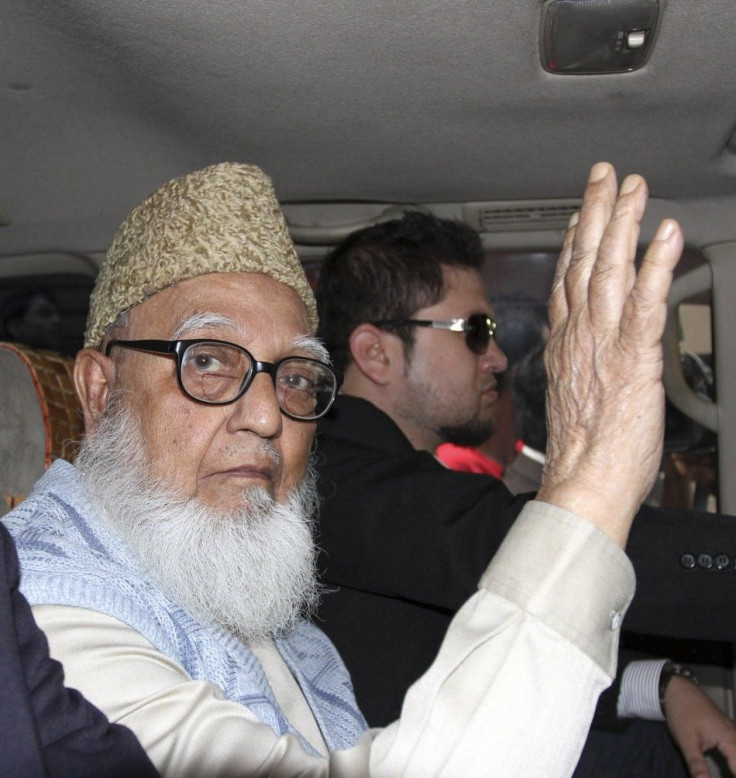Bangladeshi War Crimes Suspect Denied Bail, Placed in Prison

One of the most prominent political figures in Bangladesh, 89-year-old Ghulam Azam, the former head of the opposition Jamaat-e-Islami party, has been detained by authorities after a court refused to grant him bail, according to Bangladeshi media.
Azam is suspected of having committed war crimes during Bangladesh’s war of independence forty years ago.
Bangladesh’s International Crimes Tribunal, which was established to try war criminals from the 1971 war against Pakistan, ordered prosecuting attorneys to provide a list of witnesses who may testify against Azam.
He was the mastermind of all crimes against humanity during 1971, state prosecutor Syed Haider Ali told Agence France Presse.
Azam has denied all charges, claiming they are politically motivated, not driven by evidence.
Azam’s defense counsel Abdur Razzaq pointed out that given his advanced age, Azam suffers from various ailments, including hypertension, diabetes, electrolytic imbalance, neck pain, back pain, knee pain, arthritis, vision loss.
We have categorically mentioned that [Ghulam Azam] cannot move without the help of another person, he told the tribunal.
Chief prosecutor Ghulam Arieff Tipoo declared that while the defendant’s age will be taken into consideration, Azam, as head of Jamaat-e-Islami, was involved in a multitude of crimes and atrocities in an effort to prevent the liberation of Bangladesh from Pakistan.
Even the defense does not deny that there were atrocities across the country in 1971, Tipoo said. The involvement of Ghulam Azam was of a serious nature and impacted the whole country.
Bangladeshi officials estimated that during its war of independence in 1971, at least 3-million people died, hundreds of thousands of women were raped and another 10-million became refugees (most of whom migrated to neighboring India).
The war commenced when the country then known as East Pakistan sought to secede from West Pakistan and form its own state. The (West) Pakistani army sent soldiers to quell the rebellion. However, there was some opposition to independence within East Pakistan itself, particularly from hard-line Islamist groups like Jamaat-e-Islami. They reportedly collaborated with the (West) Pakistani forces and committed atrocities upon their own people – with Azam directing its operations, according to prosecutors.
Bangladeshi media reported that after the country won its independence, Azam went to exile in Britain for seven years, before returning in 1978. He led Jamaat-e-Islami until 2000.
Azam’s trial is not expected to start until next year and there are doubts he will live long enough for it.
Last November, another prominent leader of Jamaat-e-Islami, Delawar Hossain Sayedee, went on trial facing a litany of war crimes charges.
Six other men are also expected to be tried for war crimes, including two members of another opposition party, the Bangladesh Nationalist Party (BNP).
© Copyright Thomson Reuters 2024. All rights reserved.





















